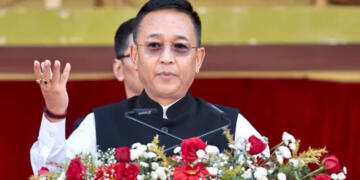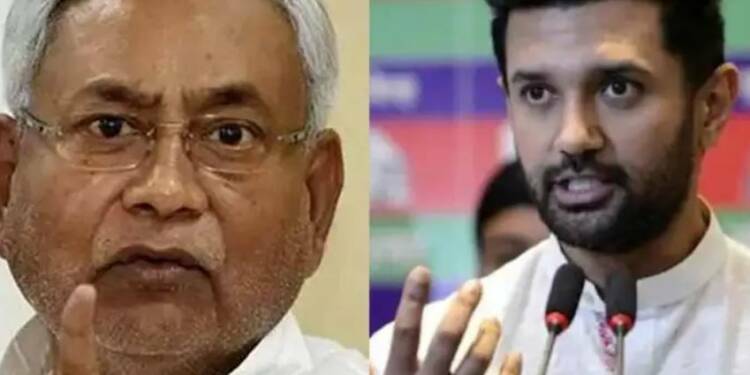For the last few months, Nitish Kumar is consistently trying to consolidate his position in the coalition government of Bihar to strengthen the position of his party JD(U). He brought the leaders of smaller parties like BSP in JD(U) fold, inducted many new leaders like Upendra Kushwaha and reformed the leadership and organisational hierarchy of the party.
The sense of defeat and loss is evident from the recent developments in Bihar, despite the fact that Nitish Kumar got the CM chair. Although BJP appointed him to the CM chair, the reality remains that his party has been reduced to the third position after the 2020 assembly election. The JD(U) won 43 seats (15.39 per cent of the vote share) in the elections, relegated to the third position behind the RJD (75 seats and 23.11 per cent vote share) and the BJP that got 74 seats and 19.4 per cent of votes.
It was LJP, however, which played a key role in pushing Nitish Kumar to third place in the state by fielding candidates on every seat that JD(U) was contesting on, and now Nitish Kumar has avenged this by instigating a coup against Chirag Paswan. “The script that Pashupati Nath Paras read out on Monday was definitely not his own. This is the signature style of Mr. Nitish Kumar, who had, post 2010, tried to break the RJD too. Engineering the LJP coup, Mr. Kumar also wants to send a message to the BJP,” RJD MP Manoj K Jha told The Hindu.
The JD(U) leaders are very vocal about the fact that it is due to LJP led by Chirag Paswan that the stature of the party and Nitish Kumar declined. “We did not lose this election, we were tactically defeated by those with us and those against us. The LJP’s campaign, which could not have happened without a tacit understanding of the BJP, defeated 46 of our candidates,” a JD(U) leader said.
Although the senior JD(U) leaders decline any direct hand in the coup against Chirag Paswan, they argue that they want to reclaim the largest party position in the state. Party general secretary K.C. Tyagi denied any direct role of the JD(U) in the LJP coup. He said his party was doing essential housekeeping. “Our aim and goal is to return to the position we were in 2009 when we won 118 seats, to revive the same acceptability that Mr. Nitish Kumar enjoyed then,” he added.
In the 2020 assembly election, BJP and JD(U) fought on an equal number of seats but BJP’s tally was 31 more than that of the ally because several parties like LJP, AIMIM and many other regional parties cut the party votes and caused loss of many seats. Now Nitish Kumar is consolidating his party’s position with generous help from government machinery, and weeding out smaller parties and leaders through defections and alliances.
He is also trying to send a message to BJP that he would rather go for reelection because he has consolidated his position rather than compromising on his power. In the last few months, BJP has deputed many senior leaders like Shahnawaz Hussain to Bihar to increase its say in the Nitish Kumar led government.
It will be interesting to see how far this power tussle goes on, but Nitish Kumar must not forget that he might be a ‘consensus’ candidate for CM but now neither he nor his party has any sway over voters, and one can not sustain power without any organic base.





























